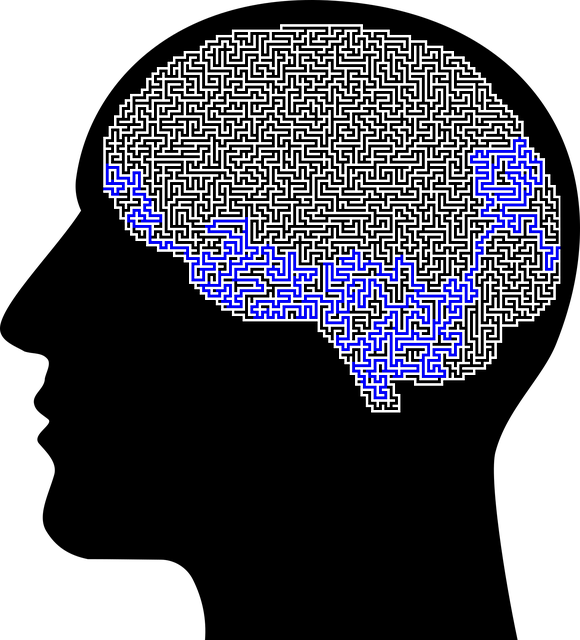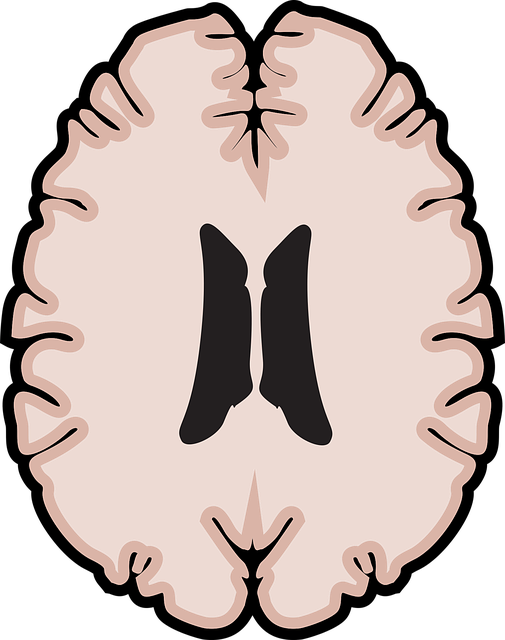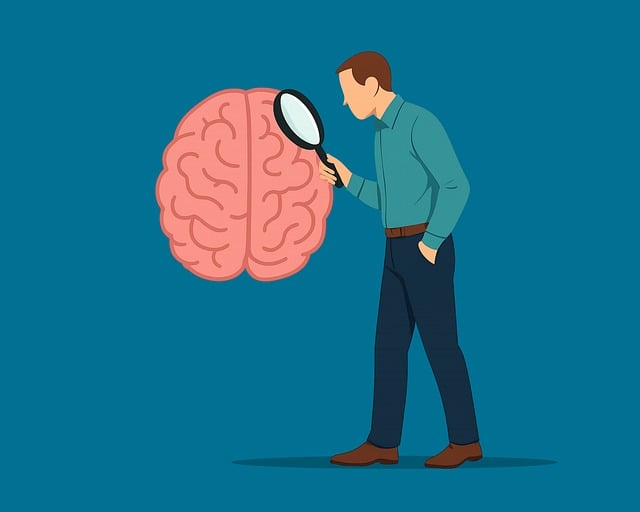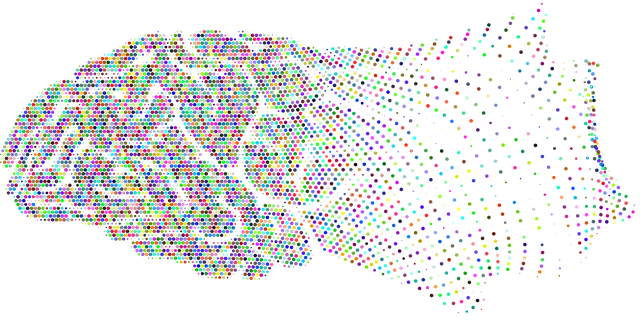Emotional Intelligence (EQ) is a powerful driver for personal growth and well-being, particularly evident in Colorado Springs Adjustment Disorder Therapy. Key components include self-awareness, empathy, effective communication, and mindfulness practices. By recognizing and managing emotions, cultivating empathy, improving communication, and staying present, individuals can enhance relationships, make better decisions, manage stress, and lead more fulfilling lives. These techniques are crucial for overcoming challenges like adjustment disorders and fostering mental wellness in both personal and professional settings.
Emotional intelligence (EI) is a powerful tool for personal growth and healthy relationships. In today’s fast-paced world, understanding and managing our emotions effectively is more important than ever. This article explores key aspects of building EI, offering insights from Colorado Springs adjustment disorder therapy experts. We’ll delve into self-awareness, empathy, communication, and mindfulness practices to unlock the potential hidden within each individual.
- Understanding Emotional Intelligence: Unlocking the Power Within
- The Role of Self-Awareness in Building Emotional Intelligence
- Enhancing Empathy: Connecting with Others on a Deeper Level
- Effective Communication: Bridging the Gap Between Emotions and Words
- Practicing Mindfulness: Staying Present and Regulating Emotions
Understanding Emotional Intelligence: Unlocking the Power Within

Emotional intelligence (EQ) is a powerful tool for personal growth and well-being, offering a path to unlock one’s inner potential. It involves recognizing, understanding, and managing our own emotions, as well as empathizing with others. By cultivating emotional intelligence, individuals can enhance their relationships, make better decisions, and lead more fulfilling lives. In the context of Colorado Springs adjustment disorder therapy, EQ plays a pivotal role in helping people navigate life’s challenges and recover from trauma or stress-related issues.
Developing emotional intelligence involves self-awareness, which is the foundation for managing our emotions effectively. It encourages individuals to recognize their feelings, identify triggers, and understand how these emotions impact their thoughts and actions. This process leads to better stress management and anxiety relief, crucial aspects in preventing burnout and fostering inner strength development. Through therapy and practice, one can learn to respond rather than react to emotional situations, leading to improved mental health and overall well-being.
The Role of Self-Awareness in Building Emotional Intelligence

Self-awareness is a cornerstone of emotional intelligence and plays a pivotal role in personal growth and development. It involves recognizing and understanding your emotions, strengths, weaknesses, and how they impact your thoughts and actions. This introspective process is essential for building resilience, especially in navigating challenging situations like those that might arise from a Colorado Springs Adjustment Disorder. By cultivating self-awareness, individuals can better manage their emotional responses and develop effective coping mechanisms, thereby fostering mental wellness.
In the context of healthcare, where burnout prevention strategies are increasingly important, self-awareness serves as a powerful tool. Healthcare providers who understand their emotional states and triggers are better equipped to handle stressful situations, leading to improved patient care and job satisfaction. The Mental Wellness Podcast Series Production can also be a medium to explore and share insights on building self-awareness and its role in enhancing resilience among healthcare professionals.
Enhancing Empathy: Connecting with Others on a Deeper Level

Empathy is a cornerstone of emotional intelligence, enabling us to understand and share the feelings of others. Building empathy involves cultivating a deeper connection with people around us, which can be especially beneficial for individuals dealing with adjustment disorders in Colorado Springs. Through active listening, asking open-ended questions, and paying close attention to non-verbal cues, we can better appreciate the perspectives and experiences of those we interact with. This heightened sense of empathy not only strengthens relationships but also fosters a more compassionate society.
In today’s fast-paced world, where stress management is paramount, practicing self-care becomes even more crucial. Techniques such as mindfulness meditation have been shown to enhance emotional intelligence by promoting calmness and clarity. By incorporating regular self-care practices into our routines, we can improve our ability to empathize with others while also maintaining mental well-being. This holistic approach to emotional intelligence includes not just understanding others but also nurturing ourselves, creating a positive feedback loop that benefits both personal and professional relationships.
Effective Communication: Bridging the Gap Between Emotions and Words

Effective communication is a cornerstone of emotional intelligence, and it plays a pivotal role in understanding and managing our own emotions as well as those of others. In a world where unspoken feelings can often lead to misunderstandings or conflicts, bridging the gap between emotions and words is essential for building strong relationships and promoting emotional well-being. This involves active listening, where one pays close attention to both verbal cues and non-verbal signals, allowing for a deeper comprehension of another’s perspective and emotional state.
In Colorado Springs adjustment disorder therapy sessions, for instance, the focus on effective communication helps individuals express their feelings more clearly, fostering an environment conducive to healing. Techniques such as compassion cultivation practices can further enhance this process by encouraging empathy and understanding, which are vital for resolving conflicts and strengthening interpersonal connections. Trauma support services also emphasize the importance of open dialogue, ensuring that those who have experienced trauma feel safe and supported in sharing their stories and emotions.
Practicing Mindfulness: Staying Present and Regulating Emotions

In the pursuit of emotional intelligence building, practicing mindfulness is a powerful tool that can significantly enhance one’s ability to navigate life’s challenges. Mindfulness involves staying present in the moment, observing thoughts and emotions without judgment. This simple yet profound practice allows individuals to develop a deeper awareness of their feelings and triggers, enabling them to respond rather than react to stressful situations. By cultivating mindfulness, you gain the ability to pause, take a step back, and create a mental space that facilitates better emotional regulation.
In Colorado Springs Adjustment Disorder Therapy sessions, incorporating mindfulness techniques can be transformative. Therapists often guide clients through mental wellness journaling exercises that encourage the reflection on emotions and experiences. This process not only helps in identifying triggers but also provides valuable coping skills development. Additionally, stress reduction methods such as deep breathing, meditation, or progressive muscle relaxation are integral to managing intense emotions and fostering overall mental wellness. These practices ensure individuals can effectively cope with life’s ups and downs while maintaining emotional balance.
Emotional intelligence, a powerful tool for personal growth and relationship building, can be cultivated through self-awareness, empathy, effective communication, and mindfulness. By understanding and managing our own emotions, we can better connect with others and navigate life’s challenges more effectively. Whether you’re seeking to improve your relationships or manage conditions like Colorado Springs Adjustment Disorder, investing in emotional intelligence is a transformative journey that empowers you to lead a more fulfilling life.














